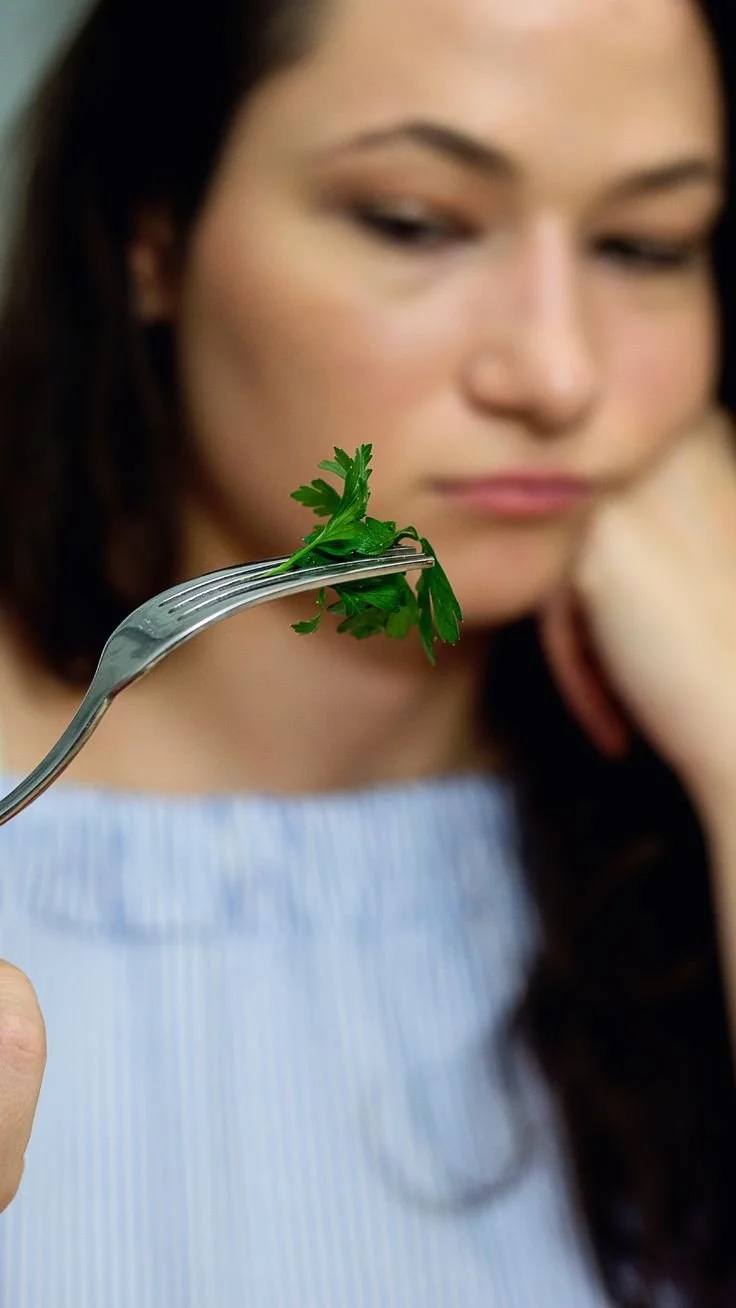
COMMON HEALTH CHALLENGES
Poor Detoxification & Oxidative Stress
When your body struggles to detox properly, the signs often show up as fatigue, brain fog, breakouts, or dull skin. These symptoms are commonly linked to toxin buildup, oxidative stress, and low antioxidant defenses. When detox pathways slow down—especially in the liver—waste lingers and puts stress on your cells. Free radicals cause more damage, and chronic stress only adds to the load by fueling inflammation and disrupting repair. These are often early signals that your body’s internal systems are working harder than they should.
SOUNDS FAMILIAR?
“I feel sluggish and heavy, like my body can’t clear things out properly.”
Poor Detoxification and Oxidative Stress: Causes & Solutions Backed by Science
If you often feel sluggish, foggy, or weighed down, poor detoxification and oxidative stress could be to blame. When your body struggles to eliminate toxins or combat free radicals, it can impact energy, skin, and overall health.
Here’s a quick look at what causes these issues — and science-backed ways to support your body’s natural detox and defense systems.
-
Micronutrient deficiencies can impair detoxification and antioxidant defenses, allowing toxins and free radicals to accumulate — stressing your liver and damaging cells.
Key gaps in antioxidants and enzyme cofactors like Vitamin C, Vitamin E, Molybdenum, and Quercetin can weaken your body’s ability to neutralize oxidative stress and process metabolic waste.Low Vitamin C: Reduces glutathione recycling and limits free radical scavenging, weakening antioxidant defense.
Vitamin E Deficiency: Compromises lipid membrane protection, leaving cells vulnerable to oxidative damage.
Inadequate Molybdenum: Slows activity of detox enzymes like sulfite oxidase and aldehyde oxidase, impairing toxin breakdown.
Low Quercetin Intake: Reduces expression of phase II detox enzymes and antioxidant pathways (e.g., Nrf2 activation), increasing inflammation.
Support detox and cellular defense by eating citrus, berries, leafy greens, and nuts. Get Vitamin C and E from colorful fruits and healthy fats, Molybdenum from legumes and whole grains, and Quercetin from apples, onions, and capers. Supplements may help if dietary intake is insufficient — work with your healthcare provider to test and optimize levels.
-
Lack of sleep and physical inactivity directly impair detoxification and accelerate oxidative stress — disrupting cellular repair, liver function, and energy metabolism. When your body misses critical recovery time or regular movement, toxins linger longer and free radicals cause more damage.
Sleep Deprivation: Reduces melatonin (a powerful antioxidant) and impairs glymphatic clearance — the brain’s overnight detox system.
Low Physical Activity: Slows lymphatic flow and circulation, limiting the transport of waste and nutrients essential for detox.
Poor Mitochondrial Recovery: Without deep sleep and movement, mitochondrial function declines, increasing oxidative stress and reducing ATP output.
Support detox and antioxidant defense by prioritizing 7–9 hours of quality sleep, ideally aligned with your circadian rhythm. Incorporate daily movement — even light exercise like walking, stretching, or yoga — to enhance circulation and sweat-based detox. Avoid screens before bed, stay hydrated, and get morning sunlight to regulate sleep-wake cycles.
-
Poor gut health weakens detoxification capacity and increases oxidative stress by disrupting nutrient absorption, gut-liver signaling, and microbial balance. When the gut barrier is compromised or the microbiome is imbalanced, toxins can leak into circulation and overwhelm your detox systems.
Leaky Gut (Increased Intestinal Permeability): Allows endotoxins (like LPS) to enter the bloodstream, triggering systemic inflammation and oxidative damage.
Dysbiosis (Imbalanced Gut Microbiome): Reduces production of short-chain fatty acids (like butyrate), which support liver detox and gut lining integrity.
Low Microbial Diversity: Limits microbial metabolism of xenobiotics and impairs activation of certain detox pathways (e.g., glucuronidation).
Support gut-driven detox by eating fiber-rich vegetables, fermented foods (kimchi, yogurt, sauerkraut), and prebiotic fibers (onions, garlic, oats). Consider probiotics to restore microbial balance, and limit processed foods, alcohol, and unnecessary antibiotics. A healthy gut improves nutrient absorption — including antioxidants and detox cofactors — while reducing inflammatory load on the liver.
-
Overexposure to environmental toxins overwhelms detoxification systems and ramps up oxidative stress, stalling energy metabolism and magnifying fatigue and cravings:
Glutathione Depletion: Continuous toxin clearance drains glutathione and other antioxidants, leaving cells vulnerable to oxidative damage.
Mitochondrial Damage: ROS attack mitochondrial membranes and DNA, impairing ATP production and slowing fat-burning capacity.
Endocrine Disruption: Compounds like BPA and phthalates interfere with thyroid and insulin signaling, further dampening metabolic rate.
Solutions: Minimize exposure (choose organic produce, filter water, avoid heating plastics), eat cruciferous vegetables, alliums, and citrus to supply sulfur and flavonoids for Phase II conjugation, and boost antioxidants with berries, green tea, vitamin C, and NAC. Pair these dietary shifts with regular sweat-inducing exercise or sauna sessions to aid toxin excretion and restore efficient metabolism.
-
Chronic stress weakens the liver’s detox defenses and ramps up oxidative stress, leaving the body fatigued and metabolism sluggish.
HPA-Axis Overdrive: Persistently high cortisol drains glutathione and Phase II enzymes, allowing toxins to accumulate.
Reduced Hepatic Blood Flow: Prolonged adrenaline constricts vessels, limiting oxygen and nutrients for detox processes.
Sleep Loss & Melatonin Disruption: Poor sleep lowers SOD and catalase production, letting free radicals damage cell membranes.
Antioxidant Micronutrient Depletion: Ongoing stress depletes vitamin C, B-vitamins, and magnesium—critical cofactors for toxin clearance.
Get 7–8 hours of sleep and avoid blue light before bed, pair this with 10 minutes of breathing or meditation to lower cortisol; add molybdenum (lentils, oats), quercetin (onions, apples), vitamin C (citrus) and vitamin E (almonds, avocado) to boost Phase II detox enzymes and neutralize free radicals; include three brisk walks or yoga sessions each week to improve liver circulation and cut oxidative stress.
The Bottom Line
Poor detoxification and unchecked oxidative stress let cellular “trash” pile up; clearing that backlog with targeted nutrients, antioxidants, and stress relief is key to reclaiming clean energy and long-term vitality.
Molybdenum, Quercetin, Vitamin C, and Vitamin E support the body’s detox pathways and protect cells from oxidative stress.
FAQs
-
It’s an imbalance between free radicals and antioxidants, leading to cell damage, accelerated aging, and chronic disease.
-
Support with antioxidants (Vitamin C, E, Quercetin), detox cofactors (like Molybdenum), eat more veggies, stay hydrated, sleep well, and manage stress.
-
Broccoli, kale, garlic, beets, turmeric, citrus fruits, and nuts.
-
Smokers, people exposed to pollution, those with chronic illness, high-stress lifestyles, or nutrient-poor diets.
-
Yes — hormonal fluctuations, pregnancy, and menopause can increase vulnerability to oxidative stress, making antioxidant support especially important for women.
READY TO LIVE 100?
Renew
Renew is our science-backed supplement, made in Germany, to support energy, focus, and healthy aging—so you can feel your best at every age.
-
Crafted to the highest standards with premium ingredients and strict quality control, because your body deserves nothing less.
-
Every capsule is packed with longevity-focused nutrients—like NMN, trans-resveratrol, quercetin, designed to support energy, cellular repair, and graceful aging.
-
Backed by science for improved energy, cognitive clarity, and healthy aging—one capsule at a time.
What Experts Say







